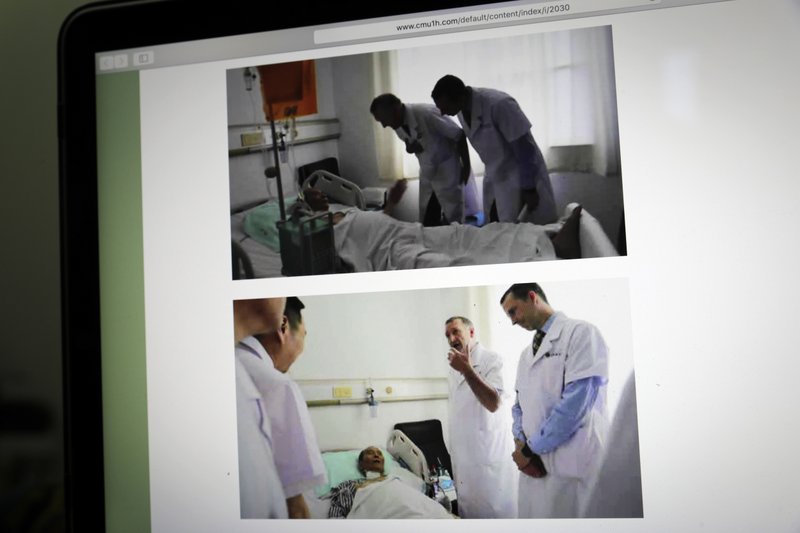BEIJING -- Two foreign specialists who visited Liu Xiaobo said Sunday that the cancer-stricken Nobel Peace Prize laureate can safely travel abroad for treatment.
The announcement contradicts statements by Chinese experts who say a medical evacuation would be unsafe for China's best-known political prisoner.
The German and American doctors, who saw Liu on Saturday, issued a joint statement saying that their home institutions -- the University of Heidelberg and the MD Anderson Cancer Center in Houston -- have agreed to accept Liu, but that any evacuation would have to take place "as quickly as possible."
Liu was diagnosed in May with late-stage liver cancer while serving an 11-year sentence for inciting subversion by advocating sweeping political changes that would end China's one-party rule. He was awarded the Nobel Peace Prize in 2010, the year after he was convicted and jailed by a Chinese court.
For weeks, family and supporters have asked for the 61-year-old activist to be fully released and allowed to receive treatment abroad, arguing that authorities are keeping him in China only out of political considerations.
Meanwhile, the Chinese government has maintained that Liu is receiving the best treatment possible at the First Hospital of China Medical University in the northern city of Shenyang. Chinese state media have labeled Liu a convicted criminal, and the government has warned other countries to stay out of China's internal affairs.
After international criticism, China allowed the two foreign experts -- Dr. Markus Buchler from Heidelberg, Germany and Dr. Joseph Herman of the University of Texas hospital -- to visit Liu.
Buchler and Herman said in their statement Sunday that they "acknowledged" the quality of care Liu has received in Shenyang. But they said that Liu expressed a desire to leave China and that they judged that he "can be safely transported with appropriate medical evacuation care and support."
Hours after the foreign doctors announced their opinion, Jared Genser, a Washington-based lawyer who represents Liu internationally, said any decision by Chinese authorities to still keep Liu would amount to "intentionally hastening his death" and "refusing to honor the wishes of a dying man to receive the treatment he desires."
"The moment that Liu Xiaobo and [wife] Liu Xia were to be allowed by the Chinese government to travel, we have a medevac ready to take them abroad," Genser said in an email.
Hu Jia, a Chinese dissident and family friend, said Beijing is afraid of letting its most potent opposition symbol go abroad as long as he is able to speak to the media.
"As long as he can still talk, the global media will report and transmit his message to the world," Hu said. "Every sound he utters will be recorded as a force for changing China."
Shang Baojun, a former lawyer for Liu who remains close to the family, told The Associated Press on Saturday that Liu was coherent enough during the visit with the foreign doctors to say that he wanted to go abroad for treatment, preferably to Germany, although the U.S. would also be fine. At times, Liu was lucid enough to communicate in English, Shang said.
The hospital itself released a brief online statement late Saturday that quoted an unnamed Chinese expert as saying it would be unsafe for Liu to travel abroad. The hospital has previously said Liu's liver function is deteriorating and that blood clots are forming in his left leg and could potentially travel to the brain or the lungs, leading to death.
Phone calls to the hospital's administration department and publicity office were not answered Sunday.
The U.S. urged China to allow Liu to travel.
"We continue to call on the Chinese authorities to grant Mr. Liu full parole and to release his wife, Liu Xia, from house arrest, and to allow them to travel to seek specialized care that would ease his suffering in his final days," said Mary Beth Polley, the spokesman for the U.S. Embassy in Beijing.
Information for this article was contributed by Gillian Wong of The Associated Press.
A Section on 07/10/2017

